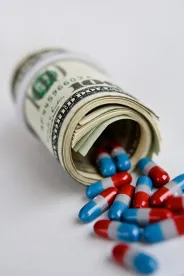As reintroduced in the U.S. House of Representatives by Rep. Frank Pallone, Jr. (D-NJ-6) on April 22, 2021 after originally being introduced on September 19, 2019, H.R. 3, also known as known as the Elijah E. Cummins Lower Drug Costs Now Act, proposes to grant the U.S. Department of Health and Human Services (“HHS”) the authority to negotiate directly with pharmaceutical companies in order to lower drug prices in Medicare Part B and Medicare Part D (the “Proposal”). The Proposal would require that 125 brand-name drugs that cost Medicare the most to be subject to negotiation by Medicare, with a cap on the price for each drug set at 120% of the average price paid in six other countries. The Proposal is part of a $3.5 trillion budget proposal that, as of this writing, faces an uncertain future in Congress. While not a novel idea, the Proposal is controversial and faces strong opposition from pharmaceutical companies in particular.
Most Democrats are in Favor of Medicare Negotiating Drug Prices to Lower Costs.
Supporters of the Proposal believe that the ability for Medicare to negotiate with pharmaceutical companies is key for combatting the soaring cost of prescription drugs. The rationale is that the current inability to negotiate has prevented competitive pricing for drugs. The Proposal would permit the HHS Secretary to negotiate Medicare Part B and Part D drug prices directly with pharmaceutical companies and make those prices available in the commercial market. As a result, the reduced prices for prescription drugs negotiated by HHS would be extended not just to Medicare beneficiaries but also to people with private insurance.[1] According to a Congressional Budget Office report, the ability for Medicare to negotiate drug prices in this way would lower drug spending by about $456 billion over a ten-year period.
President Joe Biden, as well as many other Democrats, is in favor empowering Medicare to negotiate drug prices. On August 12, 2021, the White House released a statement in which President Biden calls for Medicare to “be able to negotiate the price for a subset of expensive drugs that don’t face any competition in the market.” According to President Biden, pharmaceutical companies that raise their drug prices faster than inflation should have to pay a penalty. He is also in favor of a cap on the amount that Medicare beneficiaries have to pay out-of-pocket for drugs each year.
According to Speaker of the House Nancy Pelosi, pharmaceutical companies are charging Americans prices that are many times greater than what they charge for the same drugs in other countries, and pharmaceutical companies still make a profit on the drugs they sell overseas.[2] According to the Center for American Progress (“CAP”), a liberal research and advocacy group, drug prices in the United States are on average 2.56 times those in 32 peer counties.[3]
Many Democrats in particular see the Proposal as the solution for curbing prescription drug prices.
Pharmaceutical Companies Oppose Medicare Negotiating Drug Prices Since it Will Reduce Drug Production and Innovation Without any Savings Reaching Patients.
According to Pharmaceutical Research and Manufacturers of America (“PhRMA”), a lobbying organization that represents companies in the pharmaceutical industry, the Proposal has the potential to decrease revenue of the pharmaceutical industry by 40%. Stephen Ubl, PhRMA CEO and President, expressed concern that the Proposal was a “misguided approach” since it would “undermine access to life-saving medicines and fail to address an insurance system that shifts the cost of treatments onto vulnerable patients.”[4]
Some have expressed concern about the impact the Proposal on drug innovation. A report from the Congressional Budget Office found that there would be 0.5% average decrease per year in the number of new drugs in the first 10 years after the approval of the Policy, increasing to an 8% average decrease per year after 30 years. Critics are concerned that that there will be fewer life-saving treatments and that any savings that is negotiated by Medicare will merely go to Medicare as opposed to patients.
According to Ubl, “policymakers should work with us on real solutions like capping out-of-pocket costs in Medicare Part D, lowering cost sharing and spreading those costs over the calendar year, and making sure the savings negotiated with health plans are passed to patients.”[5]
Moderates in the Middle.
While there is definitely a division along party lines, not all Democrats are in favor of the type of drug pricing reform outlined in the Proposal. On September 15, 2021, three moderate Democrats, Scott Peters of California (D-CA-52), Kurt Schrader of Oregon (D-OR-5) and Kathleen Rice of New York (D-NY-4) on the House Energy and Commerce Committee, voted against the Proposal as included in H.R. 13. Due to their three votes, the vote to approve H.R. 13 failed in the House Energy and Commerce Committee. However, on the same day as the House Energy and Commerce Committee vote, the House Ways & Means Committee passed similar legislation during its own markup of H.R. 3 on Wednesday.[6]
Peters and Schrader favor their own legislation, which creates a yearly out-of-pocket cap on drug costs for Medicare beneficiaries, includes a more limited power for Medicare to negotiate and a $50 a month out-of-pocket cap for insulin. Medicare would only be able to negotiate for certain products in Medicare Part B that do not have exclusivity or market competition.[7]
Democrat and Chairman of the Senate Committee on Finance Ron Wyden outlines at a high level in his “Principles for Drug Pricing Reform”, which he intends to incorporate into the Senate re-write of the Proposal. His proposed legislation, while also empowering Medicare to negotiate with pharmaceutical companies, is intended to be a compromise that will achieve sufficient bipartisan support to pass the Senate.
The Senate Will Decide.
Ultimately, the power to decide the fate of the Proposal lies with the Senate. However, the Proposal as currently drafted likely will not have sufficient support for it to pass in the Senate. Nevertheless, we will have to wait to see if Democrats supporting the Proposal can garner sufficient support or if the Proposal with require significant re-writing before it can be passed. We will continue monitoring the Proposal through the legislative process.




 />i
/>i

